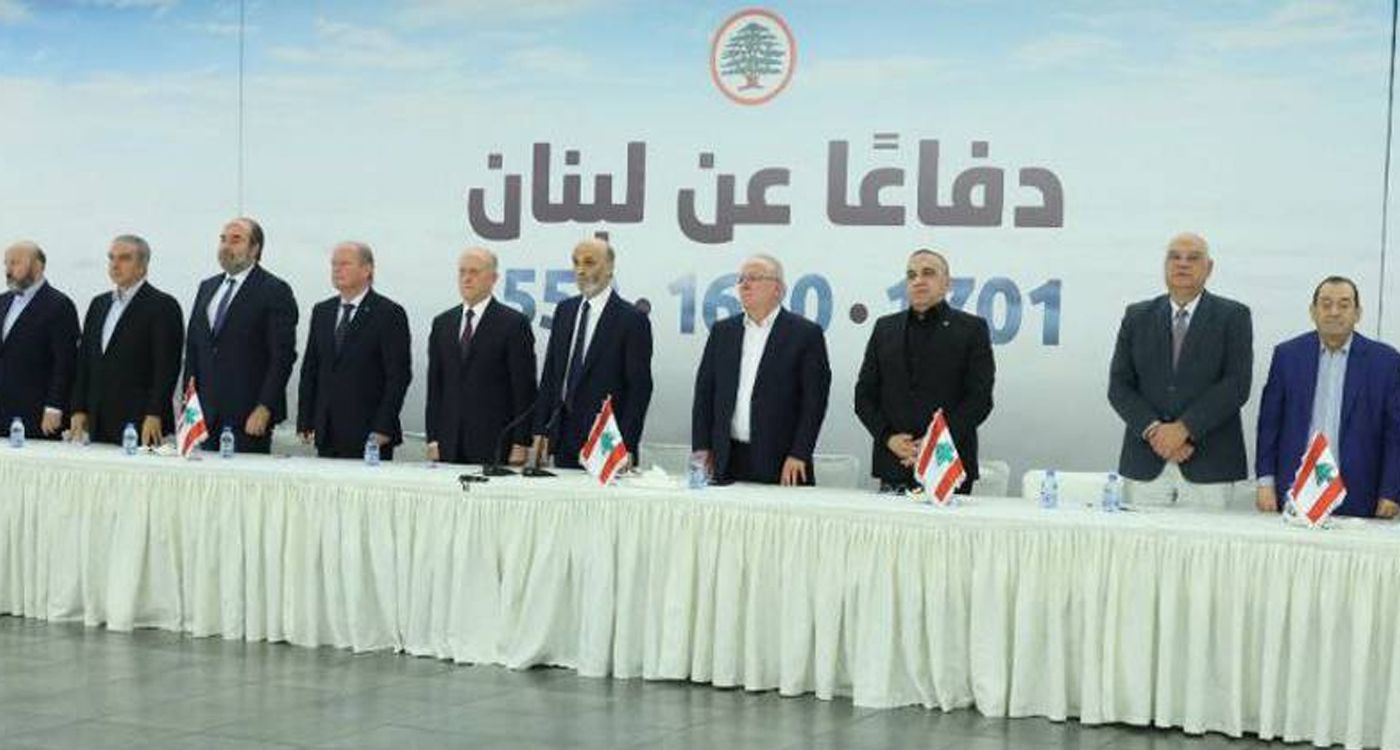
Only the truth hurts, as the saying goes. In the political sphere, it is often the uncomfortable truths that prevail. Recently tasked by Hezbollah to spearhead diplomatic negotiations with international powers, Nabih Berri—Speaker of the Lebanese Parliament and leader of the Amal Movement—has emphasized that any resolution to the ongoing conflict should focus solely on UN Security Council Resolution 1701, adopted in August 2006. Berry did not shy away from asserting that this resolution effectively overrides 1559, positioning 1701 as the essential framework for dialogue.
Amal's leader was likely responding to the resolute position of the sovereignist opposition, which is firm on enforcing UN Resolutions 1701, 1559, and 1680. Notably, Resolutions 1559 and 1680 are specifically referenced and stressed within the content of Resolution 1701. This approach was one of the two key points highlighted in the communiqué issued after the expanded opposition meeting, held on Saturday afternoon in Meerab, initiated by the Lebanese Forces. The gathering underscored a unified call for adherence to international mandates as a pathway to address the ongoing conflict.
The document released in Meerab, presented by Lebanese Forces leader Samir Geagea after three hours of intensive discussion, underscores the urgent need of fully implementing the provisions of UN Resolutions 1701, 1559, and 1680. Geagea highlighted that Resolution 1701 clearly builds upon Resolutions 1559 and 1680, aiming to enforce critical measures: the prohibition of any illegal armed presence and stockpiling of munitions or non-state military arsenal south of the Litani River, halting arms transfers from third countries to groups operating within Lebanon, and disarming militias, including Hezbollah, a pivotal issue for any comprehensive settlement. The document further advocates for the reinstatement of sovereignty and exclusive governmental jurisdiction over the entirety of Lebanese territory, coupled with rigorous border surveillance to prevent unauthorized entry of weaponry and military equipment.
Nabih Berri’s initial, almost laughable claim that Resolution 1701 overrides Resolution 1559 appears to convey a deliberate message: for Hezbollah, which he represents in this context, 1701 means little more than a ceasefire and a withdrawal north of the Litani River. This narrow interpretation allows the pro-Iranian group to regroup and rearm, using the respite to recover its losses and strengthen its local standing. This strategy could ultimately enable Hezbollah to resume its aggressive posture, just as it did in 2006, further destabilizing Lebanon, and positioning the country as a pawn under the influence of the Iranian regime, with the risk of rekindling conflict in the coming years.
The Meerab document, adopted on Saturday by the sovereignist opposition, aims precisely to break this cycle of violence and recurrent, pointless armed conflicts. It calls for the full implementation of all provisions outlined in Resolutions 1701, 1559, and 1680. In contrast, Nabih Berry's narrow interpretation of Resolution 1701 disregards the profound suffering and hardships endured by the Lebanese people for over fifty years. His stance overlooks the fact that Israeli attacks on Lebanon began in the early 1970s, triggered by the presence of armed Palestinian groups in the Arkoub region—an event that set off the cycle of conflicts that has destabilized Lebanon ever since.
The gradual erosion of Lebanon's national sovereignty over the years led to the first Israeli invasion in 1978, prompting the adoption of UN Resolution 425, which called for a ceasefire under UN supervision—the first of many such attempts. However, this attempt at peace proved ineffective, paving the way for the larger 1982 invasion, that expelled armed Palestinian groups from Lebanon, creating a power vacuum swiftly filled by Hezbollah. In 1996, following Hezbollah's continued and ineffective Katyusha rocket attacks, Israel launched Operation Grapes of Wrath, resulting in another ceasefire under the April Agreements, which failed to fully stabilize the situation in southern Lebanon.
Despite Israel's full withdrawal from the border zone controlled by the South Lebanon Army in 2000, Hezbollah reignited conflict in July 2006, triggering the adoption of UN Resolution 1701. Yet, Hezbollah’s interpretation of this resolution was limited to a mere ceasefire, enabling it to gradually expand its militia's reach to Israel's border areas and, once again, trigger another destructive war on October 8, 2023.
The speakers at Saturday's opposition meeting—which brought together representatives from various communities and political backgrounds—emphasized the critical need to break free from the cycle of repeated conflicts. The Meerab document also introduces a significant second point: it outlines, perhaps for the first time in such a context, the precise qualifications required for the next President of the Republic. It specifies that the future Head of State must possess the political will, determination, and courage required to enforce all the provisions of the three UN resolutions. These resolutions are deemed essential for reestablishing the sovereignty and exclusive authority of the Lebanese state, ensuring that governance remains undivided and firmly in the hands of legitimate national institutions.
The era of half-measure presidents, flawed compromises, and hesitant attitudes must end. Failure to do so will only perpetuate Lebanon's captivity under Tehran's mullahs, condemning the Lebanese people to a vicious circle of unending wars that serve only the interests of warmongers indifferent to the fundamental needs of a population already ravaged by an unprecedented socio-economic crisis.




Comments